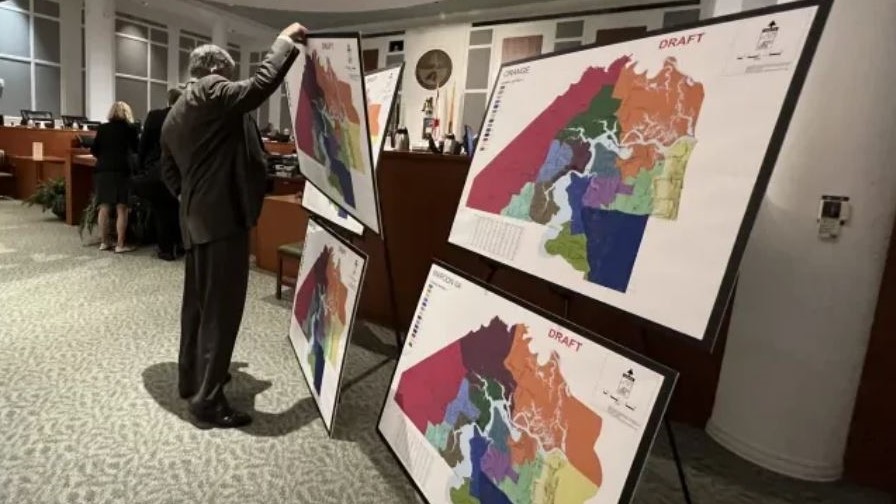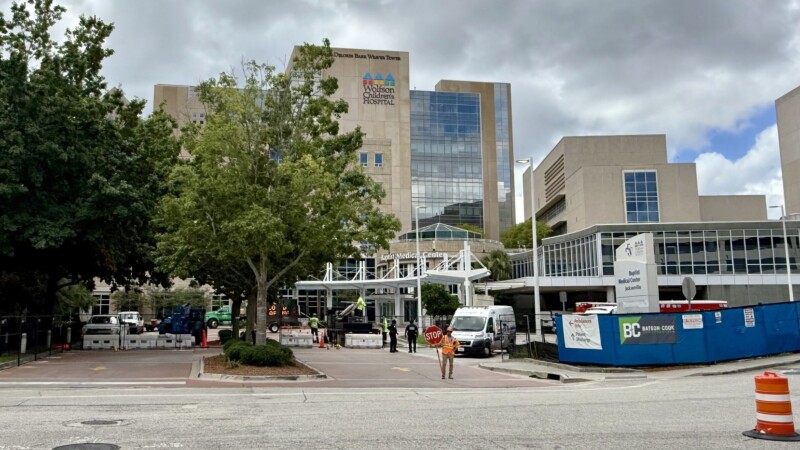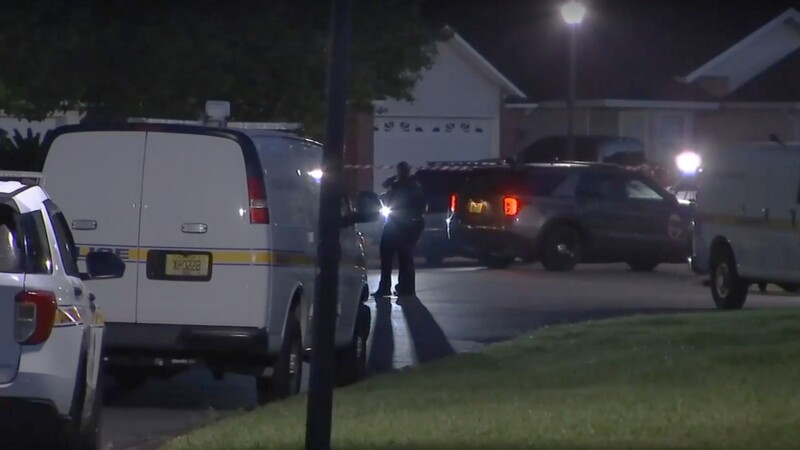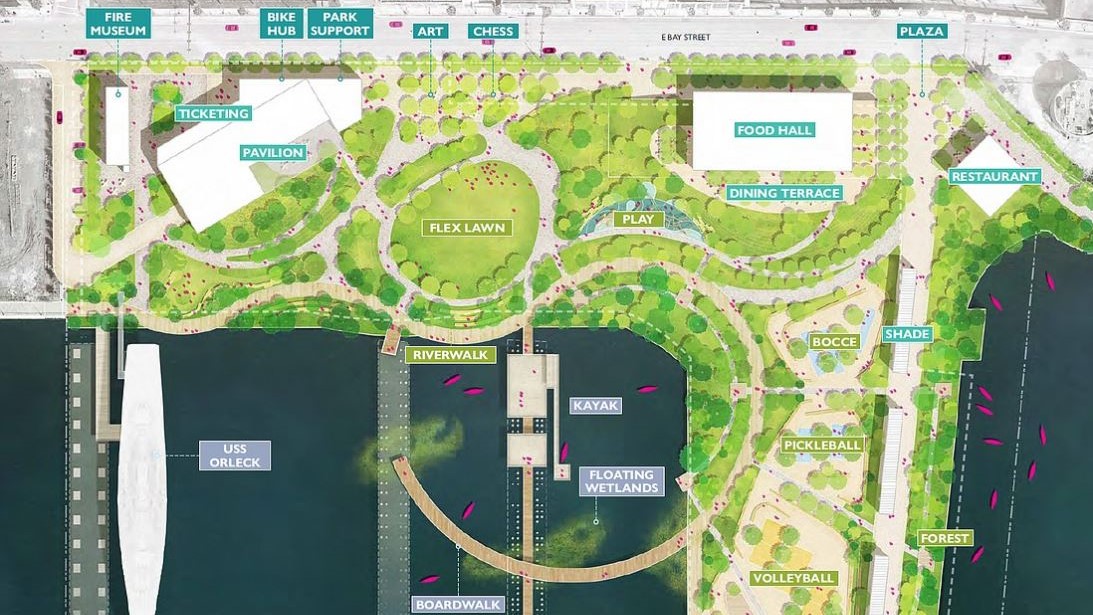The Jacksonville City Council may be ready to settle with civil rights activists who successfully sued last year over redistricting.
Jacksonville’s general counsel filed a bill this week that would settle the year-long redistricting lawsuit. The bill, which will be introduced at Tuesday’s council meeting, would mean the city has accepted a court-ordered map and will pay $100,000 in attorneys fees to the plaintiffs.
The settlement agreement also asks the federal court to issue a judgment requiring the city to use the plaintiff-drawn map, which voters used in last month’s and next month’s City Council elections. The plaintiffs also may request a special election next year for two redrawn School Board seats that would not normally be up.
General Counsel Jason Teal and City Council President Terrance Freeman have not yet responded to requests for comment.
The Jacksonville City Council is made up of 14 district seats and five at-large seats that are elected countywide. The Duval County School Board is made up of seven seats, each of which is two council district seats merged together.
“This new map provides certain positive and productive opportunities for the Black community,” said Ben Frazier, president of the Northside Coalition of Jacksonville, one of the plaintiffs in the case. “We are still able to affect the political landscape, even if in a small way.
“It’s unfortunate the City Council sent us through this ordeal and ended up costing us so much money when it didn’t have to be. We could have all sat down at the table and worked this all out. It’s unfortunate this bullying, caustic attitude existed to begin with. It’s time to move forward.”
The Florida Times-Union reported last month that the city had incurred at least $160,000 in fees from its own outside attorneys and experts, in addition to the costs from its in-house lawyers who initially litigated the case.
How we got here
After The Tributary extensively reported on the racial gerrymandering by the Jacksonville City Council, four civil rights organizations and 10 Jacksonville voters filed suit in early May 2022, asking the court to strike down seven of the city’s 14 council districts and three of Duval County’s seven School Board seats. Last October, a court did just that, ruling the city had segregated voters by race.
In past redistricting cycles, including in 2011, council members mistakenly believed they needed to draw certain districts to be at least 60% Black. That misperception, which began in the 1980s and 1990s, continued influencing how council members wanted to draw districts last year.
Under the city’s proposed map, four districts held 54.5% of the county’s Black residents, with the Black populations in those districts ranging from 61% to 70% Black. Under the new court-ordered map, those districts hold 50.6% of the county’s Black residents, and the populations range from 41% to 85% Black.
The plaintiffs included the Jacksonville Branch of the NAACP, the Northside Coalition, the ACLU of Florida Northeast Chapter and Florida Rising.
“The plaintiffs have won an important victory that advances Black political power in Jacksonville for the first time in decades,” said Daniel Hessel, one of the plaintiffs’ attorneys and a clinical instructor at Harvard Law School’s Election Law Clinic. “The plaintiff-drawn map that the court ordered better represents the city’s communities and neighborhoods. We look forward to resolving this case and cementing the plaintiffs’ successes.”
The court gave the city a second chance at redistricting, but after the city failed to fix the gerrymandering, a court rejected the city’s second map. Instead, the court ordered the city to use one of three maps submitted by the plaintiffs.
“I’m really resentful the city continually appealed and would not accept a reasonable and necessary change to the structure of the council” until now, said Marcella Washington, another one of the plaintiffs.
Washington, a former Florida State College of Jacksonville professor of Black politics, said the city’s delays hurt candidate recruitment this election, but the new districts will reap benefits for Black residents.
“It’s going to be a period where we’re going to have to get adjusted to this. In the long run, it’s certainly good news,” she said. Council members who now have compact districts, unlike the previous misshapen districts that stretched from one end of the county to another, will be more able to respond to residents’ concerns, she said.
A history of losses
So far, the city has lost in court five times. A federal court ruled the city’s original redistricting map had segregated voters on the basis of race. The court refused to halt that order. A federal appeals court also refused to stay the order. The city then got a second chance at redistricting, but the federal court found the city didn’t correct the racial gerrymandering and instead ordered the city to use a map drawn by the plaintiffs. A federal appeals court also declined to halt that order.
Before approving the first map, a city attorney told the council, “we feel strongly … if we’re sued, then we will defend it and likely prevail.”
Sam Newby, the City Council president when the maps were approved, had said before the court rulings that he was “100% confident” the city would win. His successor, Council President Freeman, had continued that assurance, saying at the time he had “the utmost confidence in the work my colleagues did during the redistricting process.” And the past Redistricting Committee chairman, Aaron Bowman, said he couldn’t “see a scenario where [the map] gets overridden.”
Although plaintiffs drew the map ordered by the court, they had told the court it was not their preferred map. While it was compact, unlike the city’s map, it had a particularly high percentage of Black residents in one district. But plaintiffs said that was necessary to follow criteria that the City Council claimed the city wanted to prioritize.
Frazier, the plaintiff, said the map has spurred Black residents to political action.
“It has awakened a sleeping political giant,” he said. “The Black body politic, we must stand up.”
After the settlement bill is introduced Tuesday, the Finance Committee will consider it May 2, and then it should go back to the full City Council for a vote May 9.
Even if the city accepts the settlement, Washington said the fight isn’t over. She hopes voters will turn their attention next to fighting the city’s at-large seats, which she said have diluted Black voting power ever since the city’s consolidation in 1968.
This story is published through a partnership between Jacksonville Today and The Tributary.
9(MDEwNzczMDA2MDEzNTg3ODA1MTAzZjYxNg004))







